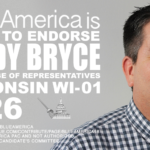From everything I read, this giveaway to Big Pharma is really, really unpopular -- but without it, Republicans don't want to support the bill. So there you go:
The Trans-Pacific Partnership, a trade deal the United States is negotiating with 11 other Pacific Rim nations, is a big, complicated document. But if you want to boil the fight over the deal down to its essence, it would be hard to do better than this sentence from Jonathan Weisman at the New York Times, discussing why last week's negotiations in Hawaii didn't produce a deal:
Virtually all of the parties hated American protections of pharmaceutical firms, but a compromise on that issue could cost the support of Republicans in Congress.
This is referring to "data exclusivity," an obscure but important provision of US pharmaceutical regulations. If the US gets other countries to adopt its approach, it could lead to less competition and higher prices for medicine in other TPP nations.
Before a company can introduce a new drug, it must convince the Food and Drug Administration that it's safe and effective. To prove that, companies conduct expensive clinical trials. Sometimes a second company will develop a drug that's chemically similar to an earlier drug and will want to use data from the first company's clinical trials in its own application. But for an important class of drugs called biologics, US law bars companies from doing this for 12 years, forcing these generic drugmakers to either do their own, redundant clinical trials or to wait until that period is over.
The US is trying to use the TPP to export this system to other Pacific Rim nations, most of which have data exclusivity periods for biologics of five or eight years. That would mean higher drug prices around the world, which is why public health groups like Doctors without Borders hate it.


















